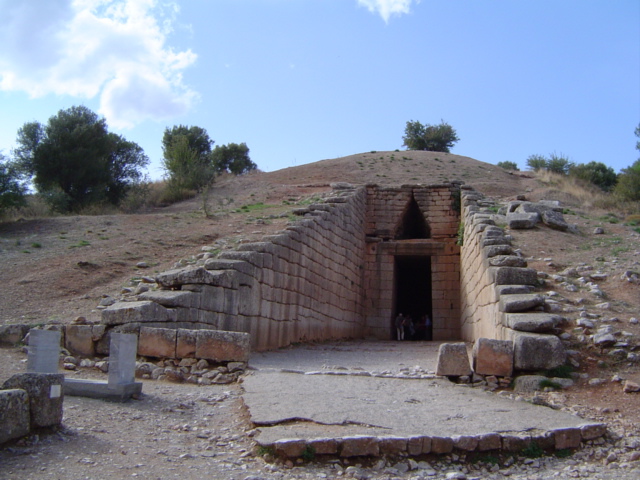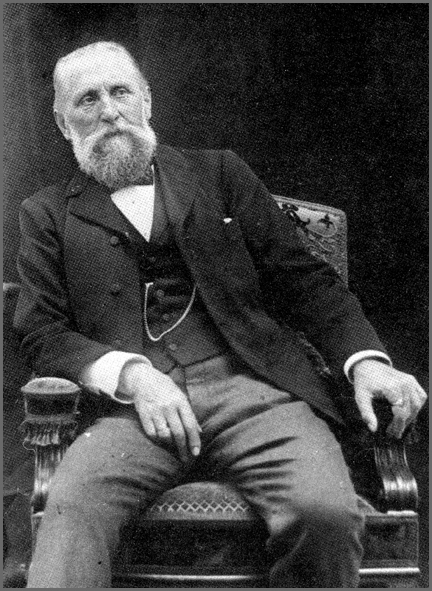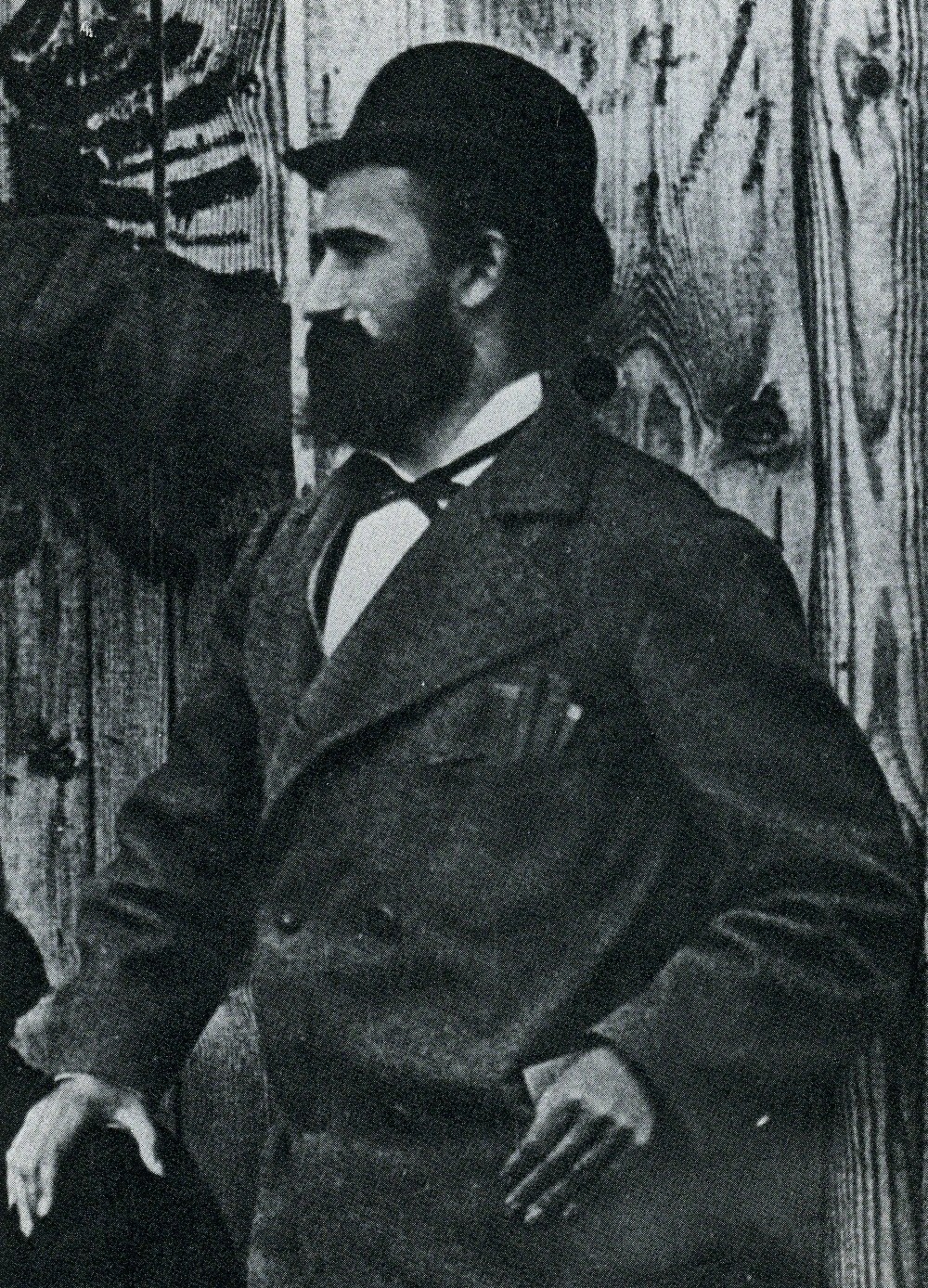|
Wilhelm Dörpfeld
Wilhelm Dörpfeld (26 December 1853 – 25 April 1940) was a German architect and archaeologist, a pioneer of stratigraphic excavation and precise graphical documentation of archaeological projects. He is famous for his work on Bronze Age sites around the Mediterranean, such as Tiryns and Hisarlik (the site of the legendary city of Troy), where he continued Heinrich Schliemann's excavations. Like Schliemann, Dörpfeld was an advocate of the historical reality of places mentioned in the works of Homer. While the details of his claims regarding locations mentioned in Homer's writings are not considered accurate by later archaeologists, his fundamental idea that they correspond to real places is accepted. Thus, his work greatly contributed to not only scientific techniques and study of these historically significant sites but also a renewed public interest in the culture and the mythology of Ancient Greece. Life He was born in Barmen, Rhenish Prussia, the son of Christine and . H ... [...More Info...] [...Related Items...] OR: [Wikipedia] [Google] [Baidu] |
Barmen
Barmen is a former industrial metropolis of the region of Bergisches Land, Germany, which merged with four other towns in 1929 to form the city of Wuppertal. Barmen, together with the neighbouring town of Elberfeld founded the first electric suspended monorail tramway system, the Schwebebahn ''floating tram''. History Barmen was a pioneering centre for both the early industrial revolution on the European mainland, and for the socialist movement and its theory. It was the location of one of the first concentration camps in Nazi Germany, KZ Wuppertal-Barmen, later better known as Kemna concentration camp. Oberbarmen (Upper Barmen) is the eastern part of Barmen, and Unterbarmen (Lower Barmen) the western part. One of its claims to fame is the fact that Friedrich Engels, co-author of '' The Communist Manifesto'', was born in Barmen. Another of its claims is the fact that Bayer AG was founded there by Friedrich Bayer and master dyer Johann Friedrich Weskott with the expres ... [...More Info...] [...Related Items...] OR: [Wikipedia] [Google] [Baidu] |
Ancient Greece
Ancient Greece ( el, Ἑλλάς, Hellás) was a northeastern Mediterranean civilization, existing from the Greek Dark Ages of the 12th–9th centuries BC to the end of classical antiquity ( AD 600), that comprised a loose collection of culturally and linguistically related city-states and other territories. Most of these regions were officially unified only once, for 13 years, under Alexander the Great's empire from 336 to 323 BC (though this excludes a number of Greek city-states free from Alexander's jurisdiction in the western Mediterranean, around the Black Sea, Cyprus, and Cyrenaica). In Western history, the era of classical antiquity was immediately followed by the Early Middle Ages and the Byzantine period. Roughly three centuries after the Late Bronze Age collapse of Mycenaean Greece, Greek urban poleis began to form in the 8th century BC, ushering in the Archaic period and the colonization of the Mediterranean Basin. This was followed by the age of Classica ... [...More Info...] [...Related Items...] OR: [Wikipedia] [Google] [Baidu] |
Ernst Curtius
Ernst Curtius (; 2 September 181411 July 1896) was a German archaeologist, historian and museum director. Biography He was born in Lübeck. On completing his university studies he was chosen by C. A. Brandis to accompany him on a journey to Greece for the prosecution of archaeological researches. Curtius then became Karl Otfried Müller's companion in his exploration of the Peloponnese, and on Müller's death in 1840 he returned to Germany. In 1844 he became an extraordinary professor at the University of Berlin, and in the same year he was appointed tutor to Prince Frederick William (afterwards the Emperor Frederick III), a post which he held until 1850. After holding a professorship at Göttingen and undertaking a further journey to Greece in 1862, Curtius was appointed (in 1863) ordinary professor at Berlin. In 1874 he was sent to Athens by the German government and there concluded an agreement by which the excavations at Olympia were entrusted exclusively to Germany. I ... [...More Info...] [...Related Items...] OR: [Wikipedia] [Google] [Baidu] |
Friedrich Adler (architect)
Friedrich Adler (15 October 1827 – 15 September 1908) was a German architect and archaeologist. After having studied at the Bauakademie (Academy of Architecture) in his native Berlin, he began teaching there in 1855, and was soon famous for building churches. In 1863 he was named a professor of architectural history at the academy.Adler, Johann Heinrich Friedrich In: Neue Deutsche Biographie (NDB). Band 1, Duncker & Humblot, Berlin 1953, , S. 71. Due to his profound knowledge of architecture, he took part of ' archaeological expedition to |
Richard Bohn
Karl Theodor Richard Bohn (29 December 1849 – 22 August 1898 in Görlitz) was a German archaeological architect born in Berlin. Beginning in 1868, he studied architecture in Berlin, and in 1877 participated in the archaeological dig at Olympia with Friedrich Adler. In 1879 he surveyed the Propylaea in Athens, and later the same year, began work at the Pergamon excavation site.Bohn, Karl Theodor Richard @ NDB/ADB Deutsche Biographie Among his duties at Pergamon, was ascertainment of the original architectural form and measurements of the . In 1887 he was named managing director of the ''Baugewerkschule'' in [...More Info...] [...Related Items...] OR: [Wikipedia] [Google] [Baidu] |
Greece
Greece,, or , romanized: ', officially the Hellenic Republic, is a country in Southeast Europe. It is situated on the southern tip of the Balkans, and is located at the crossroads of Europe, Asia, and Africa. Greece shares land borders with Albania to the northwest, North Macedonia and Bulgaria to the north, and Turkey to the northeast. The Aegean Sea lies to the east of the mainland, the Ionian Sea to the west, and the Sea of Crete and the Mediterranean Sea to the south. Greece has the longest coastline on the Mediterranean Basin, featuring thousands of islands. The country consists of nine traditional geographic regions, and has a population of approximately 10.4 million. Athens is the nation's capital and largest city, followed by Thessaloniki and Patras. Greece is considered the cradle of Western civilization, being the birthplace of democracy, Western philosophy, Western literature, historiography, political science, major scientific and mathematical p ... [...More Info...] [...Related Items...] OR: [Wikipedia] [Google] [Baidu] |
Ancient Olympia
Olympia ( el, label=Modern Greek, Ολυμπία ; grc, Ὀλυμπία ), officially Archaia Olympia ( el, label=Modern Greek, Αρχαία Ολυμπία; grc, Ἀρχαία Ὀλυμπία, links=no; "Ancient Olympia"), is a small town in Elis on the Peloponnese peninsula in Greece, famous for the nearby archaeological site of the same name. This site was a major Panhellenic religious sanctuary of ancient Greece, where the ancient Olympic Games were held every four years throughout Classical antiquity, from the 8th century BC to the 4th century AD. They were restored on a global basis in 1894 in honor of the ideal of peaceful international contention for excellence. The sacred precinct, named the Altis, was primarily dedicated to Zeus, although other gods were worshipped there. The games conducted in his name drew visitors from all over the Greek world as one of a group of such "Panhellenic" centres, which helped to build the identity of the ancient Greeks as a nation. D ... [...More Info...] [...Related Items...] OR: [Wikipedia] [Google] [Baidu] |
Berlin
Berlin is Capital of Germany, the capital and largest city of Germany, both by area and List of cities in Germany by population, by population. Its more than 3.85 million inhabitants make it the European Union's List of cities in the European Union by population within city limits, most populous city, as measured by population within city limits having gained this status after the United Kingdom's, and thus London's, Brexit, departure from the European Union. Simultaneously, the city is one of the states of Germany, and is the List of German states by area, third smallest state in the country in terms of area. Berlin is surrounded by the state of Brandenburg, and Brandenburg's capital Potsdam is nearby. The urban area of Berlin has a population of over 4.5 million and is therefore the most populous urban area in Germany. The Berlin/Brandenburg Metropolitan Region, Berlin-Brandenburg capital region has around 6.2 million inhabitants and is Germany's second-largest metropolitan reg ... [...More Info...] [...Related Items...] OR: [Wikipedia] [Google] [Baidu] |
Architecture
Architecture is the art and technique of designing and building, as distinguished from the skills associated with construction. It is both the process and the product of sketching, conceiving, planning, designing, and constructing buildings or other structures. The term comes ; ; . Architectural works, in the material form of buildings, are often perceived as cultural symbols and as works of art. Historical civilizations are often identified with their surviving architectural achievements. The practice, which began in the prehistoric era, has been used as a way of expressing culture for civilizations on all seven continents. For this reason, architecture is considered to be a form of art. Texts on architecture have been written since ancient times. The earliest surviving text on architectural theories is the 1st century AD treatise ''De architectura'' by the Roman architect Vitruvius, according to whom a good building embodies , and (durability, utility, and beauty) ... [...More Info...] [...Related Items...] OR: [Wikipedia] [Google] [Baidu] |
Greek Language
Greek ( el, label= Modern Greek, Ελληνικά, Elliniká, ; grc, Ἑλληνική, Hellēnikḗ) is an independent branch of the Indo-European family of languages, native to Greece, Cyprus, southern Italy (Calabria and Salento), southern Albania, and other regions of the Balkans, the Black Sea coast, Asia Minor, and the Eastern Mediterranean. It has the longest documented history of any Indo-European language, spanning at least 3,400 years of written records. Its writing system is the Greek alphabet, which has been used for approximately 2,800 years; previously, Greek was recorded in writing systems such as Linear B and the Cypriot syllabary. The alphabet arose from the Phoenician script and was in turn the basis of the Latin, Cyrillic, Armenian, Coptic, Gothic, and many other writing systems. The Greek language holds a very important place in the history of the Western world. Beginning with the epics of Homer, ancient Greek literature includes many works of l ... [...More Info...] [...Related Items...] OR: [Wikipedia] [Google] [Baidu] |
Latin
Latin (, or , ) is a classical language belonging to the Italic branch of the Indo-European languages. Latin was originally a dialect spoken in the lower Tiber area (then known as Latium) around present-day Rome, but through the power of the Roman Republic it became the dominant language in the Italian region and subsequently throughout the Roman Empire. Even after the fall of Western Rome, Latin remained the common language of international communication, science, scholarship and academia in Europe until well into the 18th century, when other regional vernaculars (including its own descendants, the Romance languages) supplanted it in common academic and political usage, and it eventually became a dead language in the modern linguistic definition. Latin is a highly inflected language, with three distinct genders (masculine, feminine, and neuter), six or seven noun cases (nominative, accusative, genitive, dative, ablative, and vocative), five declensions, four ... [...More Info...] [...Related Items...] OR: [Wikipedia] [Google] [Baidu] |
Religion
Religion is usually defined as a social- cultural system of designated behaviors and practices, morals, beliefs, worldviews, texts, sanctified places, prophecies, ethics, or organizations, that generally relates humanity to supernatural, transcendental, and spiritual elements; however, there is no scholarly consensus over what precisely constitutes a religion. Different religions may or may not contain various elements ranging from the divine, sacred things, faith,Tillich, P. (1957) ''Dynamics of faith''. Harper Perennial; (p. 1). a supernatural being or supernatural beings or "some sort of ultimacy and transcendence that will provide norms and power for the rest of life". Religious practices may include rituals, sermons, commemoration or veneration (of deities or saints), sacrifices, festivals, feasts, trances, initiations, funerary services, matrimonial services, meditation, prayer, music, art, dance, public service, or other aspects of human culture. Re ... [...More Info...] [...Related Items...] OR: [Wikipedia] [Google] [Baidu] |

.jpg)
.jpg)
.jpg)







